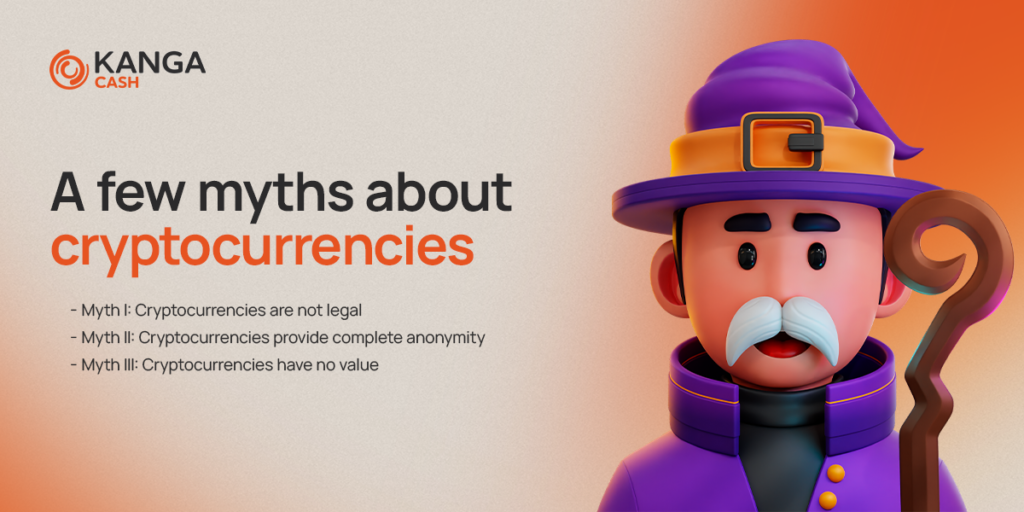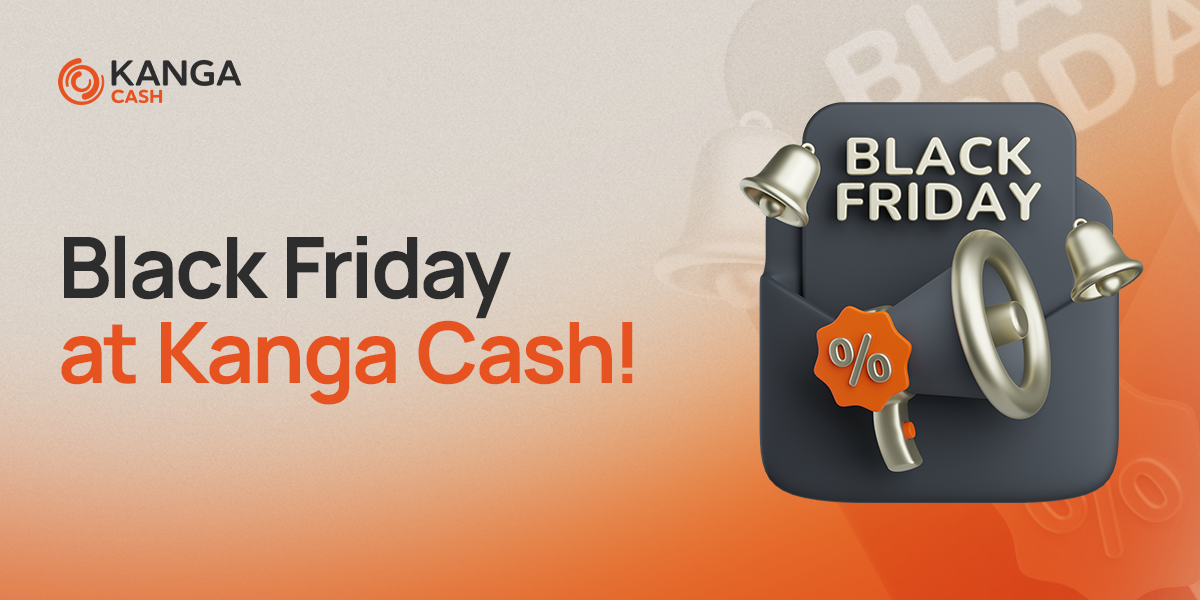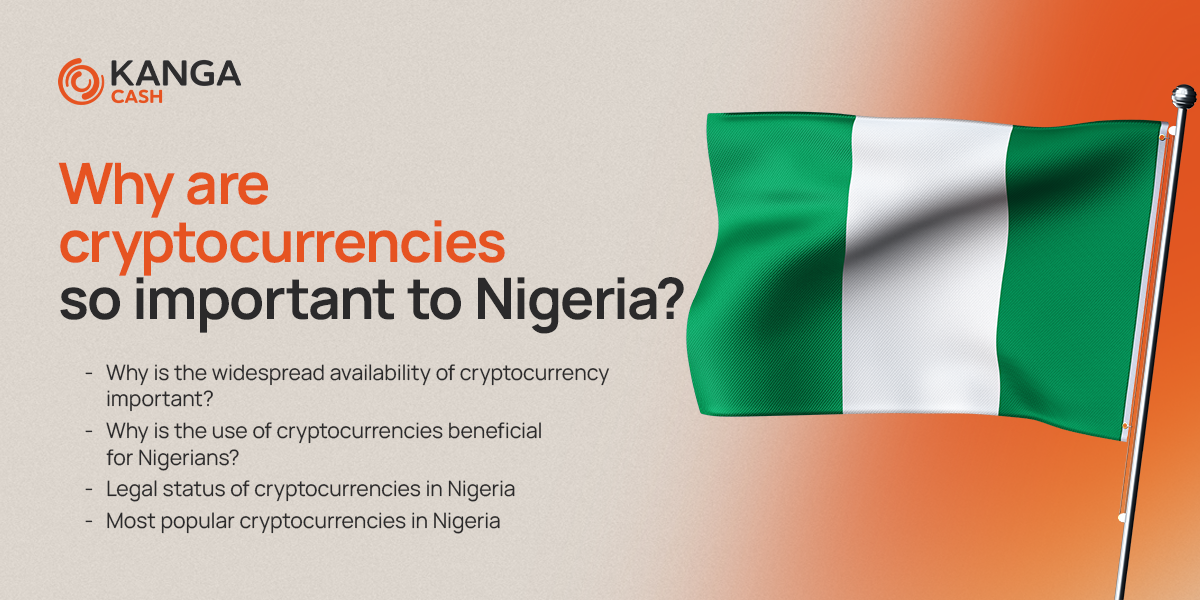A few myths about cryptocurrencies - part. I

The cryptocurrency market is growing rapidly, and digital assets are gaining more and more popularity around the world every year. Despite this, compared to fiat currencies, digital currencies often mean something completely incomprehensible. Many people still do not know the principles of their functioning or understand them very superficially. The consequence of this is the creation of many myths about crypto.
Why is it important to dismantle these false beliefs? Many of them claim that cryptocurrencies are a scam, harmful or illegal. These allegations sound serious, they can cause a lot of confusion and arouse suspicion in people for whom cryptocurrencies are something new. Fighting myths is therefore an important element of building awareness about crypto.
Myth I: Cryptocurrencies are not legal
It seems that among people unfamiliar with the realities of the cryptocurrency market, many false facts about them were born. For the uninitiated, cryptocurrencies mean something illegal and even dangerous. There is a strong belief that digital assets are only used for illegal activities such as money laundering. Is it really so? Nothing could be more wrong.
In fact, transactions using cryptocurrencies are legal and safe, and thanks to the blockchain, digital assets have become transparent. The introduction of this technology allowed for the creation of a fully transparent trading system. In addition, it can be said that, with appropriate regulations, blockchain technology can provide greater security and protection than the security measures used in traditional finance.
In addition, as the popularity of cryptocurrencies increases, so does the number of regulations to regulate them. A good example is the introduction of the Proof of Reserves method. It means control of funds belonging to cryptocurrency exchanges. The audit is carried out to verify that the exchange has sufficient reserves to cover the balances of its clients. Proof of Reserves is definitely one way to bust myths and build trust in the entire cryptocurrency industry.
Despite this information, it must be noted that the crypto market is not flawless and completely immune to criminal activity. There are frauds, hacks and hacking, but this is only a small part of the total amount of transactions on the blockchain. It is an open to control financial system that effectively blocks even the smartest fraudsters.
Myth II: Cryptocurrencies provide complete anonymity
Anonymity is another myth that grew out of the fact that cryptocurrencies are mostly used for illegal purposes. Meanwhile, the crypto market must be transparent so as not to lose the trust of users. A huge part of cryptocurrencies, including the most popular ones, runs on public blockchains. What does it mean? Any activity done there can be easily traced and analysed, and this leaves little chance for illegal activities that would not leave a trace and go unnoticed.
Despite this, a myth has been created about mysterious cryptocurrency activities that ensure complete anonymity. This belief is probably due to the fact that the crypto world remains unexplored for many people, and this unknown usually causes fear. They, on the other hand, are an excellent ground for creating various conspiracy theories and speculations.
However, it is important to know that as the popularity of cryptocurrencies increases, the number of funds allocated to the development of tools to control transactions on the blockchain also increases. It is hardly surprising if you take into account the huge capitalization of the cryptocurrency market. Simply put, there is too much money on it to ignore and leave unchecked.
So, is there any room for user privacy in the world of cryptocurrencies? The important thing is that anyone can secure digital assets with their private key. However, its loss also means no access to secured funds. For example, if you lose your online banking passwords, you can contact the branch for help. With cryptocurrency accounts, no one else has access to your private key. This has positive and negative sides. The upside is that it is almost impossible to break into a private wallet, the downside – losing the key means losing your funds.
Myth III: Cryptocurrencies have no value
Another popular myth is that cryptocurrencies are not “real” and have no real monetary value. There are often opinions that emphasize the speculative nature of cryptocurrencies. There is also a theory that investing in digital assets is highly risky because they have no backing or hidden assets acting as collateral.
However, on the part of cryptocurrency supporters, it looks a bit different. They have a similar opinion about traditional fiat currencies, which are also not always backed by raw materials, and their value must be “taken on faith”. In addition, it is emphasized that traditional currencies also lose value when they are subject to inflation.
So why do cryptocurrencies have value even though they don’t physically exist? We already know that the system of traditional finance was based on the belief in the fundamental value of goods, banknotes, coins or information contained in bank accounts. On the other hand, the value of cryptocurrencies is driven, among others, by market mechanisms, i.e. supply and demand. It seems quite simple: if there is more demand for a given cryptocurrency and less supply, the higher its price will be. It is worth adding that the value of cryptocurrencies is also influenced by factors such as the popularity of a given asset, its functionality and the trust that users place in them.


